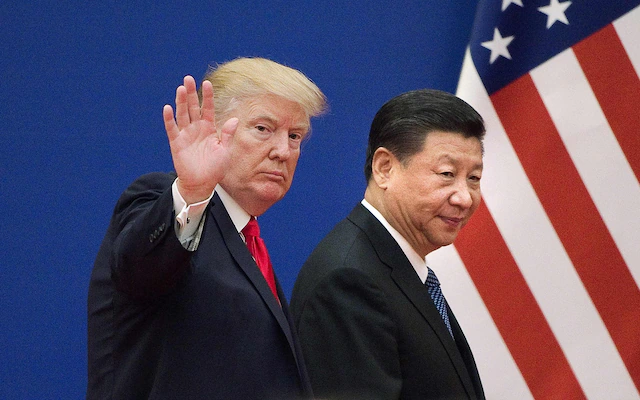U.S. President Donald Trump has intensified his trade rhetoric against China, threatening to impose 100% tariffs and sweeping software export restrictions in response to Beijing’s newly announced controls on rare earth elements and high-tech materials. The move signals a sharp escalation in the ongoing U.S.–China technology and trade conflict, with potential repercussions for global markets and supply chains.
Beijing’s Rare Earth Export Controls Spark Tension
China recently unveiled restrictions on the export of rare earths, battery components, and synthetic diamonds—key inputs for chipmaking, clean energy, and defense manufacturing. Analysts view the move as a strategic countermeasure to U.S. sanctions targeting Chinese semiconductor and AI firms, intensifying the struggle for control over critical technologies that power the global economy.
Trump’s Strong Response: “Economic Blackmail”
In a fiery statement, Trump accused China of engaging in “economic blackmail” and vowed to respond with “the most powerful tariffs in history.” He asserted that the United States “will not allow China to weaponize supply chains or dictate the future of American technology.”
According to sources close to his policy team, proposed measures include full tariffs on Chinese electronics and additional restrictions on U.S.-made software used in semiconductor design and advanced manufacturing. Such steps could significantly tighten the flow of essential technology between the two largest economies.
Global Markets on Edge
Financial markets reacted cautiously to the escalating rhetoric. Investors fear that the proposed tariffs and export bans could trigger a new wave of trade volatility, reminiscent of the 2018–2019 U.S.–China trade war. Economists warn that further confrontation could disrupt global supply chains, increase production costs, and dampen growth—especially in the semiconductor and electric vehicle industries, which depend heavily on cross-border cooperation.
China’s Response and Strategic Position
Beijing has not yet issued a formal response to Trump’s latest remarks. However, Chinese officials have repeatedly defended their export policies as necessary for national security and resource protection. State media outlets described U.S. actions as “unreasonable suppression” of China’s technology sector, framing the conflict as part of a broader effort by Washington to contain Beijing’s rise in the global tech arena.
Implications for Global Trade and Technology
Experts warn that this latest escalation could accelerate the decoupling of global technology and manufacturing networks. With both powers racing toward greater self-reliance in semiconductors, AI, and advanced materials, the risk of a divided global tech ecosystem continues to grow.
As Washington and Beijing dig deeper into economic confrontation, the U.S.–China technology cold war threatens to reshape global trade, innovation, and geopolitics for years to come.

